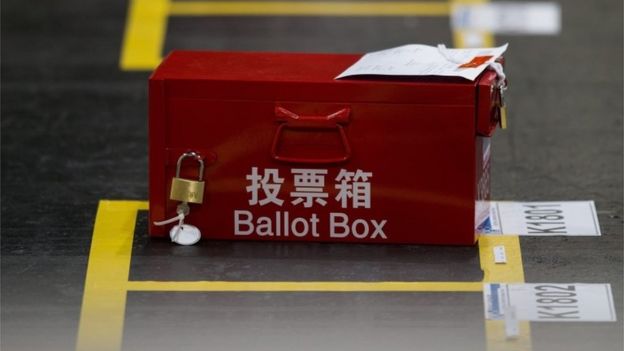HONG KONG – A new generation of anti-China activists have won seats on Hong Kong’s Legislative Council (LegCo), preliminary results indicate.
Among them is Nathan Law, one of the young leaders of the mass pro-democracy demonstrations of 2014, who is now on course to win a constituency seat.
It is the first taste of real political power for the young protest leaders.
But pro-Beijing politicians will retain a majority of seats, partly because of the electoral system.
Results were delayed by a record voter turnout, which saw some 58% of 3.8 million registered voters queue up, compared with 45.2% in 2008. Full results are due later on Monday.

The election is the first in the territory since the 2014 “Umbrella Protests”, which saw central areas of Hong Kong paralysed by mostly young protesters.
They were demanding greater democracy for the territory amid concerns that Beijing was increasingly interfering in Hong Kong politics, breaking the “one country two systems” agreement.
Beijing denies this, and gave no concessions to the protesters.
“I think Hong Kongers really wanted change,” AFP quoted Mr Law, 23, as saying. “Young people have a sense of urgency when it comes to the future.”
He is a member of the Demosisto party, set up by student leaders of the protests, and which campaigns for Hong Kong’s right to self determination.
With 90% of votes counted, he had the second highest number of votes in the multi-seat Hong Kong Island constituency meaning he will take a position in the legislative council.
Two candidates from the Youngspiration party, a more vocally pro-independence movement which also has its roots in the Umbrella Protests, were also on course to win seats.
Candidates were competing for 70 seats on the LegCo, which passes laws and budgets in the territory. But only 35 constituency seats are directly elected by the population.
Another 30 seats, called “functional constituencies”, represent particular professions or trades and only people connected to those professions or trades can cast votes for those seats.
That is about 6% of the population, who are overwhelmingly Beijing-leaning.
A further five “super seats” are chosen by voters across the territory.
The vote does not elect the chief executive, who is the head of government, but many analysts believe the outcome could have an impact on whether China grants current leader CY Leung a second term in office.
Candidates for the chief executive committee are chosen by a Beijing-backed committee.